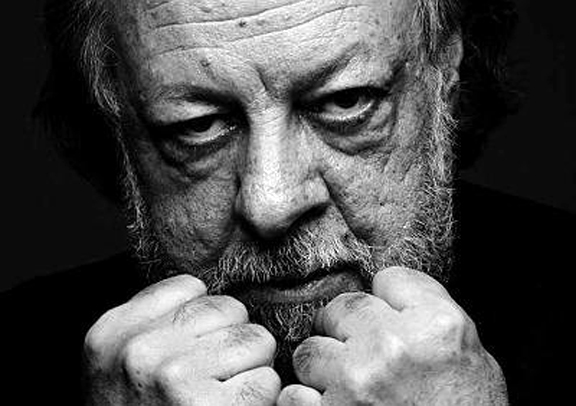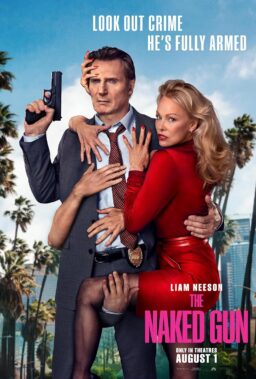I went to see Ricky Jay‘s new show, “Rogue’s Gallery,” at the Royal George. I’ve seen him more than once before, so I was prepared for an astonishing show. He’s one of the great card manipulators of all time, and he outdid himself.
He produced a large foam die, maybe 2x2x2. He turned his back to the audience. He hurled the die into the crowd. It fell into the hands of a person well known to me — Carol Iwata, my assistant for 20 years, seated next to me. He asked her to join him on stage.
He handed her a screw-top bottle, and asked her to put the die in the bottle and screw the top back on. He rolled out a table with six paper bags on it. These, he explained, were gift bags, and Carol would win one of them.
He asked her to shake the bottle and tell him what number came up. It was a two. In fact, the two came up three times in a row. Then there were two threes, and so on. Each time a different number was called, that numbered bag was removed. Finally only bag #5 remained.
He showed the worthless gifts in the other bags.
Bag #5 contained a copy of his book about dice.
It was already autographed to Carol.
Simple logic demonstrates Carol wasn’t in on the trick. She didn’t need to be.
I will explain at the end of this article how I think he may have done it.
The most astonishing elements in Ricky Jay’s show involve his sheer dexterity in card manipulation, which you can see in the YouTube clips below. He weaves it all together into a chatty narration as if he’s confiding in us, not fooling us.,
After the show we went backstage. Warm and friendly, he recalled a story I wrote about the first time we met, after the New York production of his first off-Broadway show, “Ricky Jay and his 52 Assistants.” (All of his shows are directed by David Mamet.)
That was actually, he told me at that time, the second time we’d met.
“We met at the University of Illinois,” he said. “You published something of mine in a little magazine you were editing.”
“I’m sorry,” I said. “I don’t remember the name.”
“That wasn’t the name then,” he said.
“You had a different name?”
“Yes.”
“What was it?”
“That you will never know.”
The perfect reply from a magician.
“Are you still keeping it a secret?” I asked him during this recent visit.
“I’d like to,” he sighed, “but in the age of Google, that is no longer possible.”
And now here is my proposed solution for his amazing trick.
I proceed with simple logic.
If you think over the trick, the only miraculous element is the signed book in the bag. All the best is business. The only logical explanation is that the book must be signed and placed in the bag after the volunteer is chosen and supplies a name.
Of course bag #5 must be chosen. There cannot be six signed books. I have no idea how Ricky Jay forced it, but #5 was forced.
Concealed under the table must have been an assistant who autographed the book to Carol.
“What was your name again?” he asked her. “Carol!” he repeated clearly. Her name was the only detail he forget during the evening, which also involved simultaneously solving a chess problem, providing cube roots of six-figure numbers, reciting Shakespeare and singing ballads.
He wanted to be sure the name was heard. Under Bag #5, there must have been a secret little trap door in the table allowing the book to be inserted from below and the bag seemingly closed.
In eliminating bags, he moved the others out of position. Only #5 remained in place until the end of the trick, encouraging our assumption hat it could have been moved, too. In picking up the bag and producing the book, Ricky Jay did not hand Carol the bag with the trick bottom.
Well, that’s my reasoning. How he forced #5, as I said, I don’t have a clue. But the book wasn’t autographed before she told him her name. Of that I am sure.
I would never want to know from a knowledgeable magician if I am correct. “The trick is told when the trick is sold.”
Footnote: However, it is now pointed out to me by another member of the audience, after as Carol stood up and told Ricky her name, as she walked up to the stage, only then was the table wheeled from backstage.












